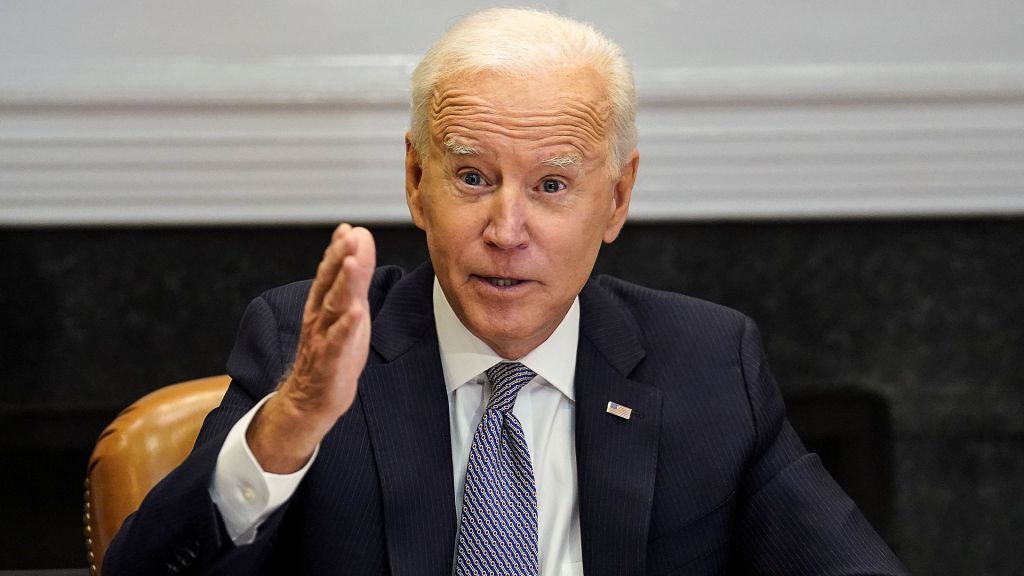
SIMONE DEL ROSARIO: IMAGINE A WORLD WHERE YOU CAN’T GET NEWS ON GOOGLE.
THAT’S EXACTLY WHAT HAPPENED TO 4% OF CANADIANS THIS PAST MONTH. GOOGLE BLOCKED NEWS DURING A 5 WEEK TEST IN OPPOSITION TO THE ONLINE NEWS ACT MOVING ITS WAY THROUGH THE NATION’S PARLIAMENT.
CANADIAN PRIME MINISTER JUSTIN TRUDEAU: It really surprises me that Google has decided that they’d rather prevent Canadians from accessing news than actually paying journalists for the work they do.
SIMONE DEL ROSARIO: BILL C-18 WOULD FORCE ONLINE PLATFORMS TO NEGOTIATE DEALS TO PAY NEWS PUBLISHERS FOR LINKS THAT APPEAR ON SITES AND SEARCHES.
AND CANADA’S NOT THE ONLY COUNTRY PURSUING THIS. A VERSION IN THE U-S ONLY DIED LATE LAST YEAR AFTER FIERCE TECH LOBBYING. BUT THAT DOESN’T MEAN IT’S GONE FOR GOOD.
IN CANADA – THOUGH FACEBOOK HAS NOT TESTED BLOCKING NEWS CONTENT LIKE GOOGLE, ITS PARENT COMPANY META ISSUED A MORE DIRE WARNING THIS WEEK, SAYING THEY WILL PULL NEWS CONTENT IN CANADA IF THE LAW PASSES.
PETER MENZIES: They’re a rational people and rational people behave in a rational fashion. And the rational thing to do is to get out of the news.
SIMONE DEL ROSARIO: SUPPORTERS OF THE LEGISLATION – INTRODUCED LAST YEAR – SAY IT’S ABOUT FAIRNESS AND BOLSTERING JOURNALISM IN THE COUNTRY, WHICH IS STEADILY LOSING REVENUE TO BIG TECH.
MINISTER OF CANADIAN HERITAGE PABLO RODRIGUEZ: Free, independent, neutral, nonpartisan press is fundamental for democracy and it’s shrinking now. You said it before, 450 news outlets closed their doors and the money is all going to the big platforms. So what we’re asking here is for them to sit down, negotiate, right? Strike a deal.
SIMONE DEL ROSARIO: A RECENT MARU PUBLIC OPINION SURVEY SHOWS MAINSTREAM MEDIA SOURCES STILL DOMINATE HOW CANADIANS GET THEIR NEWS.
BUT ABOUT A QUARTER DO TURN TO SOCIAL MEDIA SITES LIKE FACEBOOK AND INSTAGRAM, WHILE TWITTER COMMANDS 14%.
AND FOR THOSE UNDER 35, THE LARGEST SHARE IS FROM SOCIAL MEDIA.
BUT THE INTERNET’S ECONOMIC BLOWS TO NEWSROOMS STARTED YEARS BEFORE SOCIAL MEDIA PLATFORMS, AS PETER MENZIES EXPLAINS.
MENZIES IS A FORMER PUBLISHER OF THE CALGARY HERALD, AND FORMER VICE CHAIR OF THE INDUSTRY REGULATOR, CANADIAN RADIO-TELEVISION COMMISSION.
PETER MENZIES: The amount of money that we used to make in classified revenue pretty much paid for the newsroom. And that wasn’t Big Tech, in a sense, taking it away. That was Craigslist, and in Canada, largely a company called Kijiji, right. And they didn’t just steal, I mean, they gave it away for free, right? They took stuff that you were charging 25 cents a word for.
SIMONE DEL ROSARIO: CANADA’S PARLIAMENTARY BUDGET OFFICE ESTIMATES THIS AD-REVENUE-SHARING LEGISLATION WOULD GIVE NEWS PUBLISHERS AN ADDITIONAL $329 MILLION PER YEAR.
JUST SHY OF $250 MILLION WOULD GO TO BROADCASTERS. MENZIES SAYS THE BIGGEST SHARE WOULD GO CANADA’S PUBLIC BROADCASTER CBC, AND THE SECOND BIGGEST WOULD GO TO CTV, OWNED BY THE VERY PROFITABLE BELL MEDIA.
ABOUT A QUARTER OF THE ANNUAL FUNDS WOULD GO TO NEWSPAPERS AND ONLINE MEDIA.
PETER MENZIES: The poor may eat but the wealthy will dine.
SIMONE DEL ROSARIO: AUSTRALIA PASSED SIMILAR LEGISLATION IN 2021, PUSHED FORWARD BY RUPERT-MURDOCH-OWNED NEWSCORP.
DESPITE INITIAL PUSHBACK FROM GOOGLE AND META – FACEBOOK EVEN BRIEFLY SHUT DOWN ITS NEWS FEED IN THE COUNTRY – AUSTRALIA SAYS THE TECH COMPANIES HAVE NOW INKED MORE THAN 30 DEALS WITH MEDIA OUTLETS FOR CONTENT THAT GENERATES AD DOLLARS.
THE LAW SAYS GOVERNMENT CAN APPOINT AN ARBITRATOR TO DECIDE A FINAL PRICE IF THE TWO PARTIES FAIL TO REACH A COMMERCIAL DEAL INDEPENDENTLY.
PETER MENZIES: The Australian model is a piece of government legislation, which is sort of being held like a hammer behind your back that says, Okay, you guys sort it out, and then you leave people free to sort it out. And you say it’s working.
SIMONE DEL ROSARIO: CANADA’S VERSION, AS IT STANDS, IS A LOT MORE HANDS ON. IT INCLUDES MANDATORY REGULATION.
THE ACT – AIMING TO ADDRESS THE “SIGNIFICANT BARGAINING POWER IMBALANCE” BETWEEN MEDIA AND TECH – HAS BROAD SUPPORT AND PASSED THE HOUSE OF COMMONS WITH NEARLY TWO THIRDS OF THE VOTE.
MINISTER OF CANADIAN HERITAGE PABLO RODRIGUEZ: We want to make sure that news outlets receive fair compensation for their work. We want to make sure that local, independent news thrives.
SIMONE DEL ROSARIO: BUT MENZIES WORRIES THE FINANCIAL WINDFALL NEWSROOMS STAND TO GAIN, COULD COME AT A HEFTY PRICE.
PETER MENZIES: The two biggest things we have to worry about in our life, or that can control our lives, are government and Big Tech, right? How are you going to trust your media to hold their two most important clients to account?
SIMONE DEL ROSARIO: INDUSTRY EXPERTS BELIEVE IF C-18 IS SUCCESSFUL, VERSIONS WILL QUICKLY BE ADOPTED IN OTHER COUNTRIES AROUND THE WORLD.
I’M SIMONE DEL ROSARIO, IN NEW YORK IT’S JUST BUSINESS.






